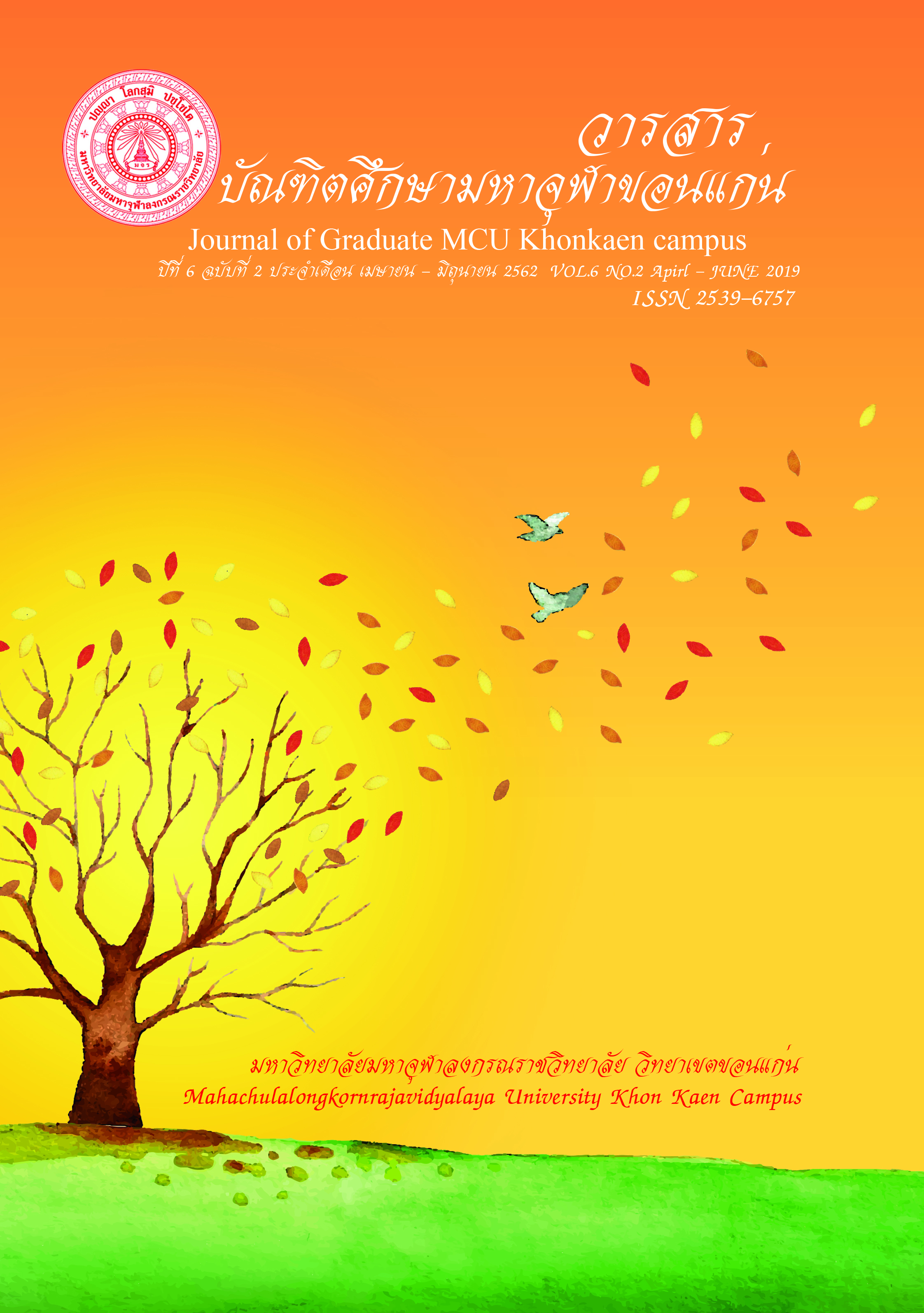Interpretation of Concept ‘Brahma’ in Theravada Buddhism
Main Article Content
Abstract
The aims of this research were: 1) to study the concepts of Brahma in Theravada Buddhism; 2) to study hermeneutics; 3) to analyze the interpretation of the concepts of Brahma in Theravada Buddhism. This study was a documentary research conducted by the study of relevant documents and the gathered data were interpreted by the descriptive analysis based on the analytic induction.
The research results were as follows:
1) The concepts of Brahma in Theravada Buddhism is divided into two types of Brahma characteristics: 1) Brahma as teaching with reference to ideas (pugaladhiṭṭhāna); 2) Brahma as exposition in terms of ideas (dhammādhiṭṭhāna). 2) The interpretation is divided into two categories: 1) religious interpretation in a specific group; 2) universal interpretation by using the principles of dhamma classification (vibhattihāra) in the Netipakaraṇa text and the deconstruction theory of Derrida.
3) Based on the analysis of the interpretation or hermeneutics of the concept ‘Brahma’ in Theravada Buddhism by dhamma classification (vibhattihāra) in the Nettipakaraṇa text and the deconstruction theory of Derrida, it was found that 1) the interpretation of Brahma in terms of using teaching with reference to ideas refers the Brahma as the human beings with Jhāna (absorption) attainment; after passing away from this world during existence of the Jhāna, they are born in 20 Brahma realms based on the power of the Jhāna they attained; 2) the interpretation of Brahma by exposition in terms of ideas refers the Brahma as the person with two level purity attainment: 1) the person who attained the purity by the sublime states of mind (brahmavihāra) such as mother, father and attained the purity of the four Jhānas including the brahma existing in 20 brahma realms; 2) the person with the purity by the Eightfold Paths (ariyamagga) including the Buddha and his arahant disciples.
Article Details
References
Version. Bangkok: Mahachulalongkornrajavidyalaya Press.
PhraThepArena (Prayut Piyatto). (1989). Phutthatham. Bangkok:Maha
Chulalongkorn University.
Thanit Yodpho. (2006). Brahma: Education in the History of Art and
Archeology. in Brahma: Articles, by Thanit Yodpho and others.
Bangkok: Amarin Publishing.
Thonglor Wongtharma. (1992). Indian Philosophy. Bangkok: OS Printing
House.

